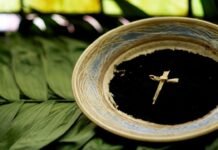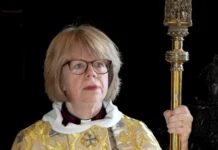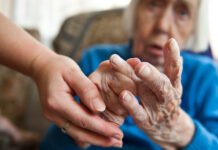‘Response to Panorama and launch of Anti-Racism Task Force’ : 23 April 2021
When George Floyd was murdered last year his last words were: I cannot breathe.
Those words echoed around the world, summing up so many peoples experience of not having the space to be themselves, of being second-class citizens in someone else’s world. This is the antithesis of the belonging and the new humanity we have in Christ that the Christian faith declares. It is, therefore, a gospel imperative for the Church of Jesus Christ to oppose racism in all its forms, to prophetically call for racial justice, and to challenge the white hegemony which so often still controls the narratives of the world.
Racism is a sin. Like all sin it must be confronted with a call to repentance and with the healing, reconciling promise of the gospel.
Therefore, it was sobering and shameful for the Church of England to be confronted by the Panorama documentary last Monday evening with its own institutional racism and a number of shockingly specific instances where sisters and brothers in Christ have experienced racism in the Church of England.
As you know, I was interviewed as part of that programme. I also speak as a member of CMEAC, the Committee for Minority Ethnic Concerns, where I have been privileged to work for the past eight years.
There are things I said to the Panorama team which I wish had been included in the documentary, not least the clear condemnation of racism that I hope you are hearing clearly now. Nevertheless, I want to thank those who participated in the programme for their honesty and clarity. With Archbishop Justin, I want to emphasise our immediate response to the programme, which is that non-disclosure agreements should not be used except in the most exceptional of circumstances, and then only to protect the victim, not the reputation of the institution. We are sorry that this has not always been the case.
You will also know that the Anti-Racism Task Force we set up last autumn published its inspiring, challenging, and – God willing – far reaching report on Stephen Lawrence day this week. It identifies five areas where urgent action is needed, namely –
• Participation, including appointments and shortlists for appointments
• Education
• Training and mentoring
• Work with young people
• Governance and structures…
And some immediate things. Such as this Synod being encouraged to co-opt more ethnic minority members; establishing a Racial Justice Commission to look at our working practices, and hold the two of us to account; replacing CMEAC with a new standing committee of the Archbishops’ Council to oversee the work of the Racial Justice Directorate; and including ethnic minority clergy participant observers in the House of Bishops.
In due course there will be a presentation and a discussion of all this at Synod. However, we couldn’t let this group of sessions pass without acknowledging the scale of the challenge and the call to action.
So, I’m not standing here to defend our record. Nor am I saying everything will be ok. It won’t be, unless we take action. I’m saying that there is racism in the Church and it must be confronted. But no longer by words. We have to do something. We have to become the change we long to see.
Both the Task Force and the Commission are now mandated to help us implement ‘significant cultural and structural change.’ It has our support. As Arun Arora has said: ‘Apologies and lament must now be accompanied by swift actions leading to real change. And as Graham Tomlin pointed out yesterday in a blog Grace and Race, ‘It is the gospel, not a secular agenda that drives the Church’s vison for racial justice so that the Church genuinely reflects and demonstrates the varied and multi-faceted wisdom and grace of God in Christ.’
I say this to you as a white man who has been on a long journey of learning, and still has, I’m sure, some way to go. But let me finish with a little story that radicalised me. Before I went to ordination training I worked at Saint Christopher’s Hospice in South London for a year. I was a ward orderly. I was the only white man on a team of amazing black women. We became good friends. They taught me a great deal. It was the time of the Brixton riots – only a couple of miles down the road. One of the women I worked with, Grace, was my partner on the Monday after the weekend riots. One by one, throughout the day, a succession of white men stopped her in the corridor and made the same demeaning joke, asking her whether she had been throwing bricks or smashing up bus shelters. Each time, she would patiently smile at their inappropriate joke. But in the afternoon, when a senior consultant made the joke for the umpteenth time, she snapped. She told this so-called senior man what she thought of his derisive humour. She stomped off. He turned to me and said – and I quote – “What is it with these people. Can’t they take a joke?”
I took a deep breath. The deep breath that I can make as a privileged white man even though I was in a very low position compared to him, and I said that I’d been working with Grace all day and had been given the tiniest glimpse of the horrifying, persistent, degrading drip, drip of demeaning racism and how I was surprised she hadn’t snapped earlier and that he owed her an apology.
The Church of England owes some of our sisters and brothers in Christ a much greater apology than this; and for much greater wrongs. But most of all we owe it to the nation we serve and to the God we love, that in this watershed moment – the week when George Floyd’s killer was brought to justice – we will now commit ourselves to change.
For any of my own failings in this I am truly sorry. But let me remind you: one of our named strategic objectives is to be a diverse church. I’m determined to make that happen. Because it is a gospel issue. Because it is the theological vision of our belonging to one another in Christ that drives our mission. Because we all need to breathe. And because our facing this issue of racial justice is itself a movement of the Spirit breathing God’s life of unity and glorious God given diversity into God’s Church.




“I took a deep breath. The deep breath that I can make as a privileged white man….” What? Is he apologizing for God making him white?
This “racial” business is just another way for the world to take the focus from Christ and Him crucified.